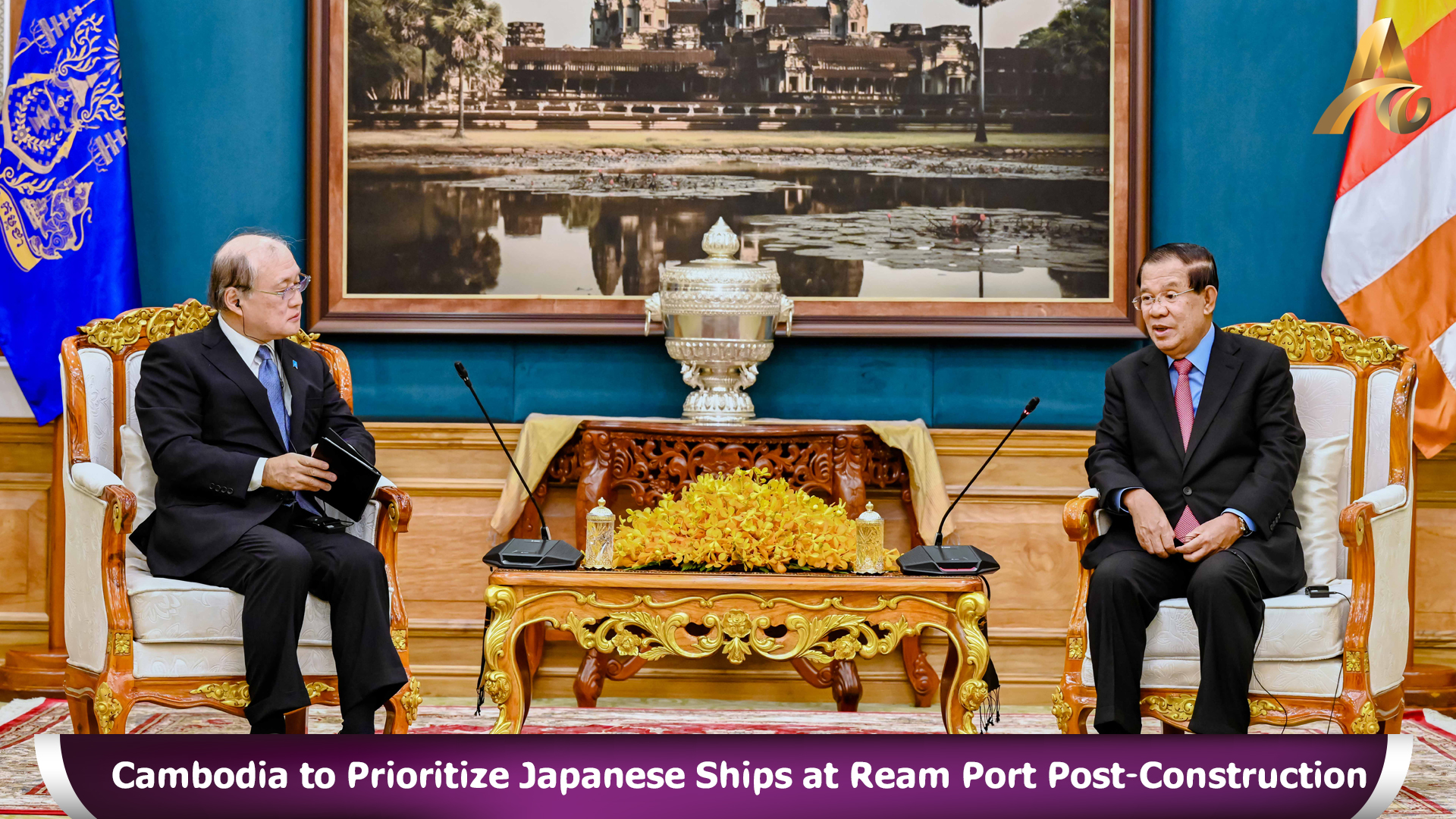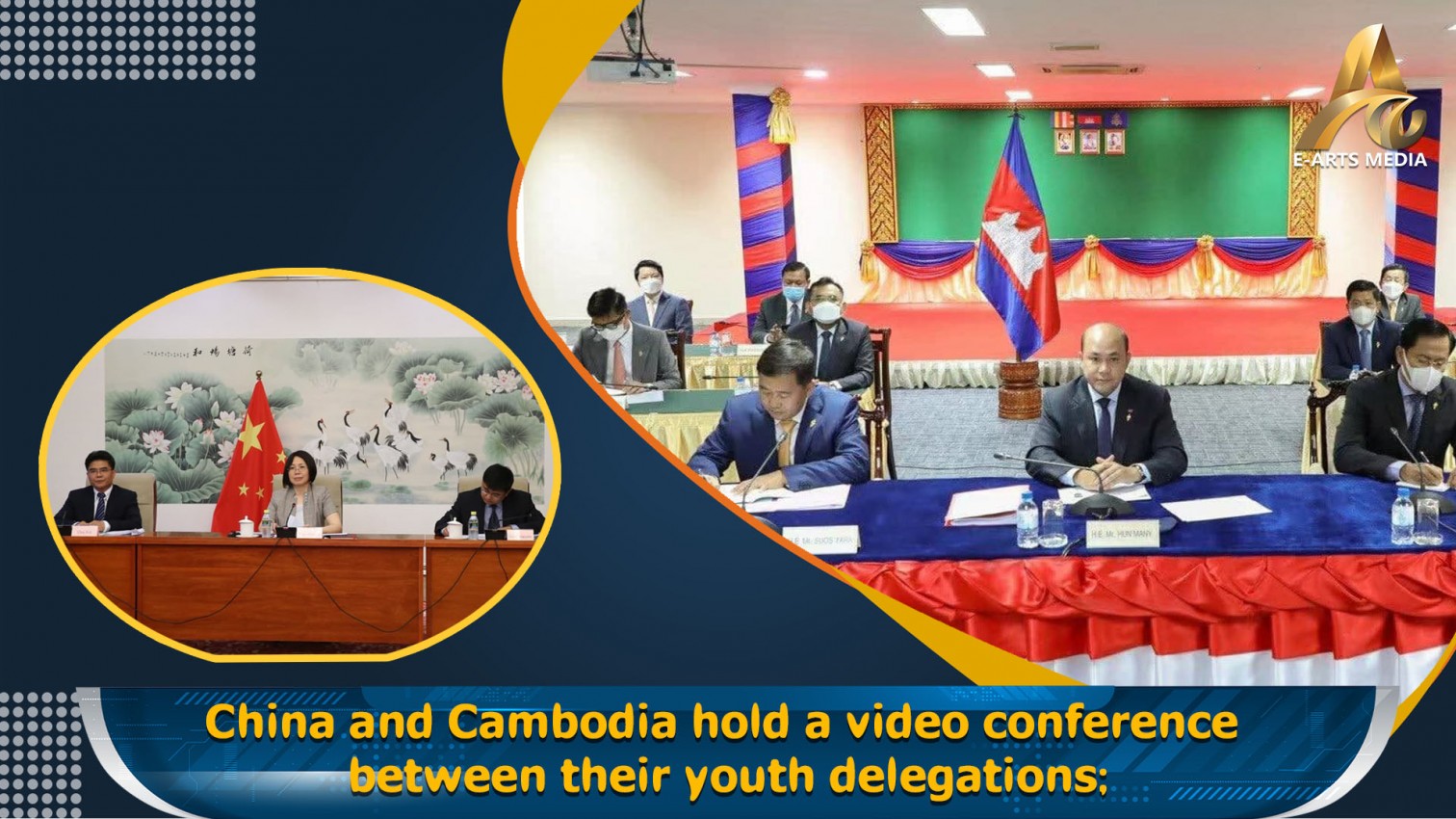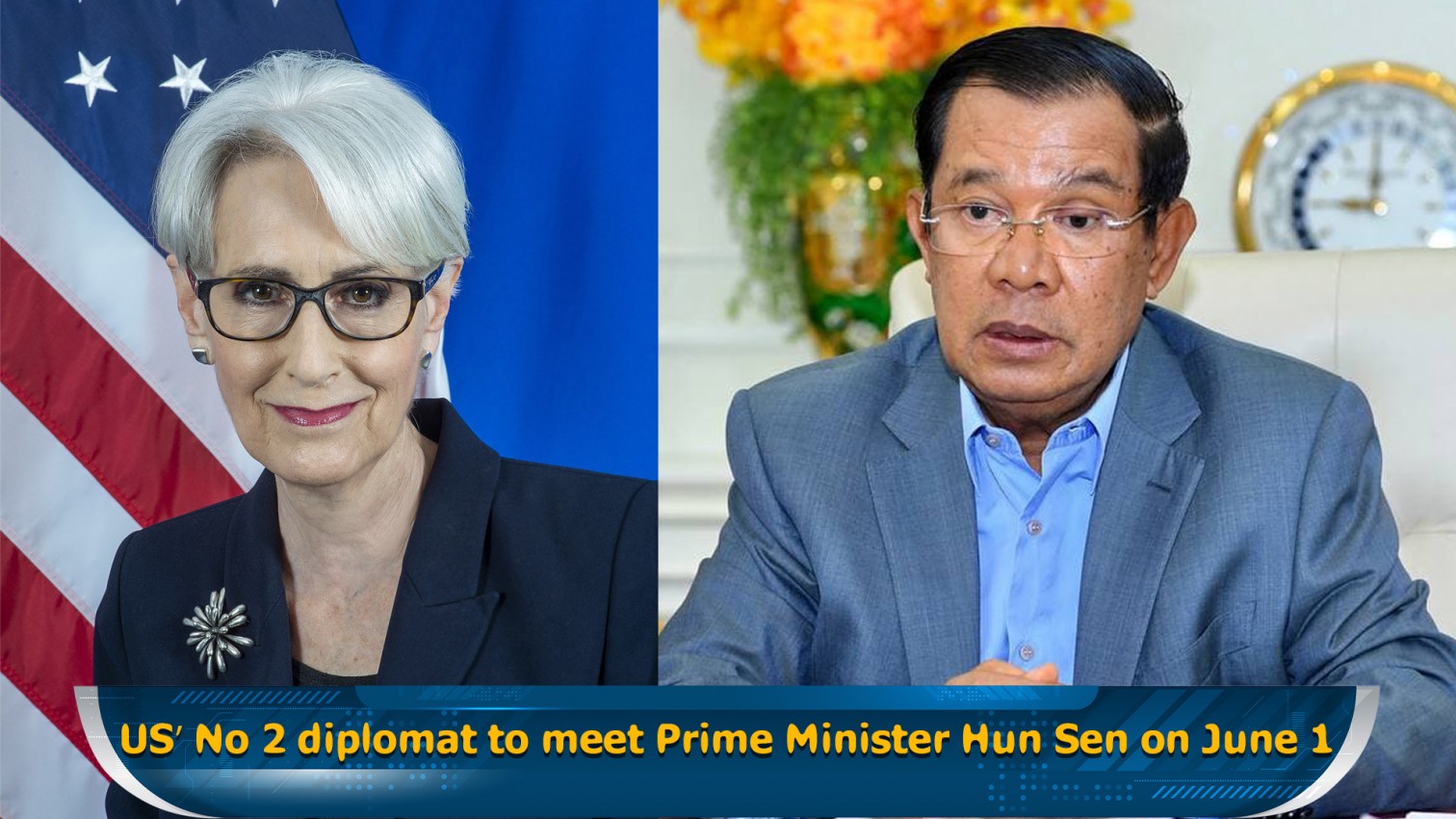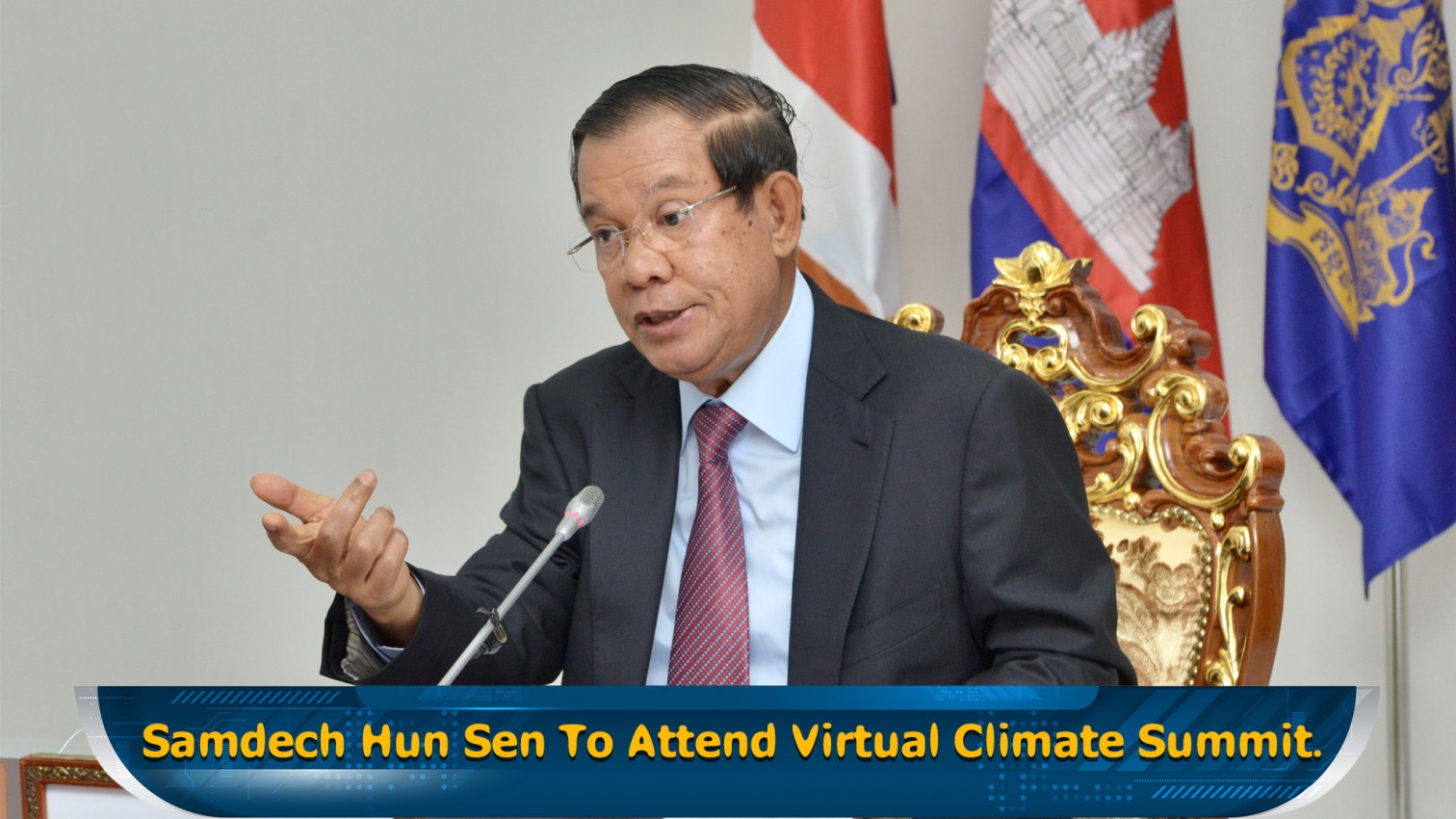
Senate President Hun Sen: Cambodia to Prioritize Japanese Ships at Ream Port Post-Construction
Phnom Penh, December 20, 2024: Senate President Hun Sen, Acting Head of State of Cambodia, announced that once construction is complete, Cambodian ports will prioritize Japanese ships for docking at Ream Port.
The declaration was made during a meeting with Akiba Takeo, National Security Advisor and Secretary-General of Japan's National Security Agency, at the Senate Palace in Phnom Penh.
During the meeting, Senate President Hun Sen highlighted the significant improvements in defense relations, both naval and land-based, which reflect the comprehensive strategic partnership between Cambodia and Japan. He expressed optimism that ongoing discussions and the current visit would further enhance bilateral relations and cooperation.
Mr. Akiba Takeo commended Senate President Hun Sen for his leadership in guiding Cambodia toward peace, stability, and prosperity, particularly after the nation's challenging history. He noted that Cambodia's relations have flourished under Senate President Hun Sen's guidance across all sectors, including security.
Mr. Akiba also informed Senate President Hun Sen about Japan's review of its national security strategy, emphasizing the need for constructive dialogue with partner countries and major global powers like China. He stressed that without cooperation, particularly with China, stability, prosperity, and development would be unattainable. Furthermore, he reiterated Japan's commitment to fostering cooperation with Cambodia, ASEAN, and other significant players to enhance regional stability and development.
In response, Senate President Hun Sen expressed gratitude for the acknowledgment of his contributions to national unity and peace in Cambodia, a period that has not been witnessed historically. He recognized the steady progress achieved through collaboration with Japan in various fields, including infrastructure development, particularly the enhancement of Sihanoukville Port. He underscored the importance of peace as a cornerstone for continuous national development.
Senate President Hun Sen noted that Japan's review of its national security strategy aligns with Cambodia's objectives, highlighting a mutual desire to bolster peace. He reiterated the notion that discussions surrounding human rights, democracy, and development are inconceivable without peace. He thanked Japan for its role in deploying the Japan Self-Defense Forces (JSDF) for the United Nations peacekeeping operations in Cambodia in 1992—a decision he supported despite facing criticism from the international community.
Furthermore, Senate President Hun Sen praised Japan's regional engagement, stating that many countries view Japan as a valued partner that respects the interests of its neighbors and upholds ASEAN's centrality. He affirmed Cambodia's support for Japan's Free and Open Indo-Pacific strategy.
Amidst the growing emphasis on Indo-Pacific strategies from various nations, Senate President Hun Sen reiterated Cambodia's backing for strategies and initiatives that adhere to three principles: (1) promote peace, development, and cooperation rather than conflict; (2) refrain from becoming a tool against any nation; and (3) respect ASEAN’s centrality. He asserted Cambodia’s independence in making political decisions in international relations.
In light of the increasing tensions in the region, Senate President Hun Sen attributed the underlying issues to distrust among major powers and excessive interference from external nations in regional affairs, instigating military build-ups and an arms race. He encouraged enhanced dialogue between Japan and China to foster mutual trust.
The discussions between Senate President Hun Sen and Akiba Takeo also encompassed various international issues, including the ongoing conflict between Russia and Ukraine.






























